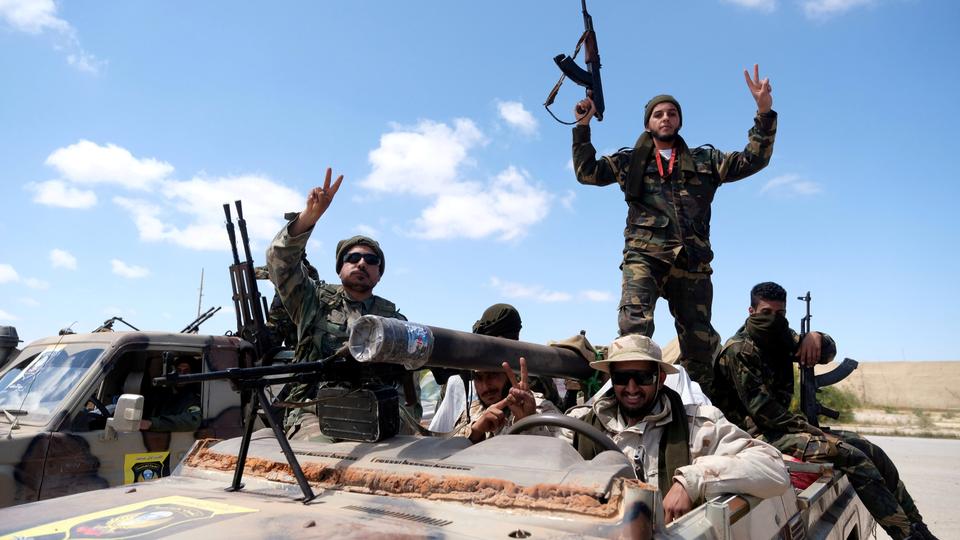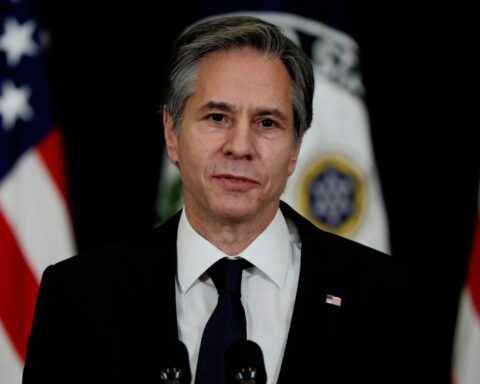In the years since, the country has descended into civil war. The conflict is characterized in key ways by warring nonstate armed actors, many of which are backed by foreign governments.
Below, Brookings experts on Libya briefly reflect on the key dynamics they see as critical at this juncture.

Jeffrey Feltman, Visiting Fellow in the Center for Security, Strategy, and Technology: One year ago — with Tripoli besieged — few would have envisioned that, by the 10th anniversary of the uprising against Moammar Gadhafi on February 17, a three-track, United Nations-facilitated process would create the most promising moment in Libya in years. The next five weeks are critical, as I write with former Acting Special Representative of the U.N. Secretary-General Stephanie Williams in another piece. If deadlines are met and spoilers sidelined, Libyans will have a unified executive authority for the first time since 2014 and national elections on December 24, 2021, the 70th anniversary of Libya’s independence.
Astonishingly, 71% of Libyans polled express satisfaction with the February 5 selection by the 74-member Libyan Political Dialogue Forum (LPDF) of an interim executive authority. Over 1.7 million Libyans (a quarter of the population) participated virtually, as 45 candidates answered questions submitted by the public. This novel transparency doomed some high-profile candidates: House of Representatives Speaker Agila Saleh was asked for a response to western Libyans about his support for the assault on Tripoli, and he shrugged that “everyone makes mistakes.” Abdul Hamid Mohammed Dbeibah, the prime minister-designate from the winning slate, has 21 days to propose a cabinet, and the House of Representatives an additional 21 days for confirmation.
Political progress derived from success in the security track. In October, generals affiliated with both eastern and western authorities (the “5+5”) expanded a de facto truce around Sirte into a nationwide ceasefire. The economic track has, among other things, unified exchange rates, approved a single national budget for the first time since 2014, and restored oil production.
The United Nations Support Mission for Libya (UNSMIL), and especially Williams (whose tenure ended February 5), deserve credit for creative facilitation in all three tracks.
Momentum, however, can stall. Potential internal and external spoilers are numerous. If Washington puts its muscle behind the current process, Libya might become a positive story. Democrats in Washington, burned by the politicization of the 2012 Benghazi murders, may recoil from engaging on Libya. But a resumption of chaos in Libya would affect global oil markets, divide European allies (via migration), complicate counterterrorism efforts, pit our Arab and Turkish partners against each other, deepen schisms inside NATO between France and Turkey, and provide an opening for Russian expansionism. As when President Thomas Jefferson deployed the Marines to battle Barbary pirates on “the shores of Tripoli” in 1805, so today: We have strategic interests in Libya.

Federica Saini Fasanotti, Nonresident Senior Fellow in the Center for Security, Strategy, and Technology: On February 5 in Geneva, after weeks of negotiations among the LPDF — comprised of Libyan representatives from all over the country and under the blessing of UNSMIL — Abdul Hamid Dbeibah and Mohammad Menfi were selected as prime minister and head of the Presidential Council, respectively. The ceasefire agreement signed by Libya’s opposing factions last October has made possible the U.N.-backed political talks.
Despite these encouraging developments, deep-rooted socio-political tensions — rooted in Libyan soil and exacerbated by foreign actors — represent a serious challenge on the path to diplomacy. The newly appointed U.N. Special Representative for Libya Jan Kubis faces an extraordinary difficult set of tasks.
With a weak government, a constellation of militias (often with criminal characteristics), and four years of American absence, Libya has become fertile for foreign competitors like Turkey, Russia, Egypt, Qatar, and the United Arab Emirates (UAE). Many of them have militias on the ground, in spite of the January request by Libyans for their withdrawal. The Russians and Turks, in fact, have strengthened their positions, and nothing suggests that they will leave.
Thus, in the face of some political improvements, military confrontation remains possible. That would be extraordinarily dangerous for the democratic process, with new national elections slated for December 24.
The former acting special envoy for Libya, Stephanie Williams, with her resilience, has shown that it is possible to proceed towards stabilization. A strong stance is now needed from the United States and, above all, a serious strategy implemented by a muscular diplomacy.

Pavel Baev, Nonresident Senior Fellow in the Center on the United States and Europe: The United States should retain a stake in the international management of the Libyan conflict for many reasons, and one of them is that Russia is deeply engaged. Moscow is pretending to act as a key peace-promoter, but in fact is acting as a spoiler.
For President Vladimir Putin, Gadhafi’s horrible end remains a recurrent reminder of the risk of violent uprisings, which was allowed to materialize in 2011 by the bad decision of then-president Dmitry Medvedev to grant NATO the right to execute an air campaign with the U.N. approval.
Russia began a hybrid intervention in Libya in 2018 — a reflection of its geopolitical ambitions, but also its urge to “undo” the mistake of allowing the West to unleash uncontrollable violent chaos in the country years earlier. Unlike the official military intervention in Syria that Moscow launched in 2015, the operation in Libya involved only the deployment of about 1,500 mercenaries from the so-called “Wagner group.” This approach was less costly (and funded partly by the UAE) and entirely deniable.
Russia’s experience with this low-risk power projection is, nevertheless, decidedly mixed. The mercenaries added enough capabilities for the motley forces of General Khalifa Haftar to launch an offensive on Tripoli, but when Turkey decided to back the besieged Government of National Accord (GNA) with its own limited intervention in early 2020, the stalled offensive turned into a rout. Russia has made an unofficial deal with Turkey, and the hostilities have remained frozen along the Sirte-Jufra line. The squadron of Russian fighters deployed to provide air support to the Wagner forces, which retain control over several oil fields, has remained idle.
In the current diplomatic efforts at rebuilding Libya’s governance, Moscow’s reliance on the Wagner mercenaries compromises its claims of impartiality and exposes its interest in manipulating rather than ending the war.

Courtney Freer (@courtneyfreer), Nonresident Fellow in the Center for Middle East Policy: One development we’ve seen in Libya over the past few years is increased international involvement in the crisis. In particular, the rift between Qatar and Turkey on one side, and the UAE, Bahrain, Egypt, and Saudi Arabia on the other has been transposed onto the Libyan context. While the U.N. ordered that the UAE-backed General Khalifa Haftar and the Qatar- and Turkey-backed Government of National Accord (GNA) withdraw their proxy forces by January 23, it did not take place (at least not on that schedule). In fact, recent U.N. reports charge that Emirati involvement continues via Sudanese proxy fighters.
In its domestic and foreign policy, Emirati leadership is increasingly seeking to repress Islamist actors. Its support for certain proxy forces in Libya illustrates that, and this is something the Emiratis have pursued in Sudan, as well. This approach was easier to sustain under a Trump administration concerned with transactional relationships rather than more normatively-oriented U.S. involvement in the Middle East. The Biden administration now needs to take seriously the consequences that increased involvement in the region’s domestic political issues have — both for direct American interests and for the the broader, longer-term stability and security of affected countries. In Libya, a U.S. absence has meant that Emirati and other international interests have become increasingly entangled on the ground.

Ranj Alaaldin (@RanjAlaaldin), Visiting Fellow in the Brookings Doha Center and Nonresident Fellow in the Foreign Policy program: I had the privilege of visiting Libya during the early stages of the uprising. Speaking to Libyans in Benghazi, members of the opposition, and the revolutionaries undertaking the battle, the revolutionary spirit was palpable, including a sense of optimism about the future of the country.
While Libya is engulfed in instability today, it is important to not lose sight of the real possibility that Libya would be in a far worse position had Gadhafi remained in power, and one only needs to look at Syria to have a striking sense of where the country may have otherwise headed. Indeed, the dismantling of Gadhafi’s weapons of mass destruction program in the years leading up to the Arab uprisings — thanks to the efforts of former British prime minister, Tony Blair — was critical to preventing a form of mass atrocity that Syrians were not so fortunate to escape. No-fly zones can work, as can Western efforts to remove the ability of brutal despots to carry out humanitarian atrocities.
However, the international community and their Libyan partners failed to accomplish what should arguably be the most pressing objective in the aftermath of any conflict: the disarmament of militia groups, a prelude to establishing a professionalized security force that manages the fallout from a major military conflict, prevents the proliferation of arms and additional militia groups, and enables pathways for political stability.
The aftermath of the uprising was not followed with a viable power-sharing arrangement. The rush to hold elections prior to securing reconciliation exacerbated divisions and entrenched the prevailing military balance of power. The opportunity to build on the success of the intervention to establish a success story out of the post-conflict aftermath was missed. The consequences have been profound and reverberate today through civil strife, an internationalized proxy war, and the demarcation of territorial boundaries by rival factions.
Brooking






